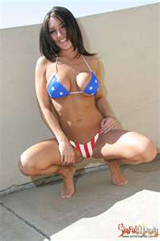
NEW TGS COVER STORY…THE INEXPLICABLE AND THE BIZARRE by The Gaming Today’s Bruce Marshall

 Damascus in 1967 and Riva Ridge in 1972, were both upended in one of their legs of the Crown due to foul weather and sloppy tracks, something Secretariat never had to worry about in 1973. Indeed, had the weather been clear and the Pimlico track fast in 1972, Riva Ridge would have likely won the Preakness instead of longshot local mudder Bee Bee Bee (right), before Riva’s easy win at the Belmont. And Diane Lane would likely have still been playing Mrs. Penny Tweedy (Chenery), but in a movie about her Riva Ridge, not her Secretariat, almost 40 years later.
Damascus in 1967 and Riva Ridge in 1972, were both upended in one of their legs of the Crown due to foul weather and sloppy tracks, something Secretariat never had to worry about in 1973. Indeed, had the weather been clear and the Pimlico track fast in 1972, Riva Ridge would have likely won the Preakness instead of longshot local mudder Bee Bee Bee (right), before Riva’s easy win at the Belmont. And Diane Lane would likely have still been playing Mrs. Penny Tweedy (Chenery), but in a movie about her Riva Ridge, not her Secretariat, almost 40 years later.
Yet call it luck, chance, fate, or dame fortune, something has been up in the first few weeks of the college football season, where on-field developments have ranged from the inexplicable to the truly bizarre. In the first week of action alone, there were two games eventually cancelled (Western Michigan-Michigan and Marshall-West Virginia) in the second halves of action due to thunder and lightning; a third, South Florida at Notre Dame, would likely have met the same fate except for the Irish TV deal with NBC, which would have waited all night for the storms to pass and action to resume. We had only recalled a couple of such in-game gridiron cancellations during our previous 54 seasons of publishing…and now two on the same  weekend? Needless to say, the Las Vegas sports books were an interesting place to be when the Michigan and West Virginia games were eventually cancelled; since neither game had gone the required 55 minutes for a payable result, tickets were voided and money refunded. Which was either a very good or very bad deal, or, if you wish, lucky or unlucky, for punters, depending upon which tickets they held.
weekend? Needless to say, the Las Vegas sports books were an interesting place to be when the Michigan and West Virginia games were eventually cancelled; since neither game had gone the required 55 minutes for a payable result, tickets were voided and money refunded. Which was either a very good or very bad deal, or, if you wish, lucky or unlucky, for punters, depending upon which tickets they held.
And, if we thought Week One was out of the ordinary, we hadn’t seen anything yet. Neither had the various Las Vegas sports books, which had to deal with arguably the most bizarre football wagering circumstance in history in Week Two.
The game in reference was the Utah-Southern Cal matchup Saturday night, September 10, at the L.A. Coliseum, which for 59 minutes and 59 seconds looked like another of many tense, but hardly unique, affairs that would be decided in the final moments. But that’s when things got interesting. And, at least according to many bettors, dumb luck entered the equation.
Trailing 17-14 in the final seconds and lining up quickly to beat the running clock for a potential game-tying field goal that would force overtime, the Utes saw their kick blocked and returned for a TD on the last play by the Trojans’ Torin Harris. Which momentarily appeared to give SC a 23-14 win…except that the referees threw a flag on the Trojan bench for unsportsmanlike conduct in their celebration during the run, apparently nullifying the TD and ending the contest with a 17-14 scoreline. As the 17-14 final clicked over the wires a few moments later, the Las Vegas sports books began to pay out accordingly, with all of the Utah tickets, whether +10, 9 1/2, 9, 8 1/2, or 8 points, cashed as winners.
 Two hours later that evening, however, word came from L.A. that the Pac-12 had changed the final score to 23-14. Which created quite a scene at the books that had to decide how best to deal with the new score of the game and its impact on the payouts.
Two hours later that evening, however, word came from L.A. that the Pac-12 had changed the final score to 23-14. Which created quite a scene at the books that had to decide how best to deal with the new score of the game and its impact on the payouts.
And, as could be expected, spawning every conceivable conspiracy theory in Las Vegas, short of one of Jack Ruby’s relatives influencing the Pac-12, about the pointspread result motivating the scoreline change.
Eventually, the Pac-12 stated that the score should always have been 23-14, and technically wasn’t changed at all, chalking up the failure in transmitting the proper score to a miscommunication between the referees and the press box. We accept the Pac-12’s explanation as completely plausible, although we remain a bit curious. Especially since the NCAA and Nevada Gaming Control Board were reportedly more than a bit interested about the circumstances regarding the score change; the Pac-12 really had no alternative but to walk back the original mistake and chalk it up to a miscommunication error. Anything else would invite more suspicion.
Where things became extremely interesting late Saturday night and into Sunday were at the Las Vegas books. At one of the busiest, the LV Hilton SuperBook, director Jay Kornegay had to act fast. “We usually get a handful of those changed scores per year in basketball, but it’s almost always very soon after we get the first reported final result, and it usually doesn’t impact the spread,” said Kornegay. “But I’d never seen anything like this (Utah-SC).”
Indeed, when the Utah-SC score change came over the wires a couple of hours later, Kornegay and the other sports book directors in town knew they had a hot potato on their hands. “We immediately called (Nevada) Gaming Control (Board),” said Kornegay. “They told us to simply stick with whatever rules are posted in our book, which in our case respected the change in the score as long as it happened on the date of the event. The change for Utah-SC came at about 10 PM on Saturday night, so we then began making payouts based on the 23-14 score. Interestingly, action on the game for us was pretty well split, but we did pay Utah money in those first two hours.
“What surprised me is why the score would have to change? We have seen in the past where an admission of error was made, but they wouldn’t change the score. Which made this one more unusual.
“But rules vary at the sports books around town. Which is why some treated the result differently.”
 Differently, indeed. While all of the books were paying out on 17-14 and a Utah cover for the first two hours after the game, some properties, including MGM, Wynn, and Caesar’s, per their rules, continued to stick to paying out on the original 17-14 scoreline. Others, such as Kornegay’s LV Hilton, the Coast Casinos, and South Point, switched to the 23-14 result, while the Stations properties, after some confusion, honored both sides, save those tickets at SC -10 or 9 1/2.
Differently, indeed. While all of the books were paying out on 17-14 and a Utah cover for the first two hours after the game, some properties, including MGM, Wynn, and Caesar’s, per their rules, continued to stick to paying out on the original 17-14 scoreline. Others, such as Kornegay’s LV Hilton, the Coast Casinos, and South Point, switched to the 23-14 result, while the Stations properties, after some confusion, honored both sides, save those tickets at SC -10 or 9 1/2.
Utah-SC, however, was almost certainly a one-off situation, a combination of factors unlikely to be replicated anytime soon. Including the fact the spread on the game hovered between 10 and 8 all week, adding a mysterious gaming element to the eventual 9-point margin. Regardless, the idea of conferences changing scores hours after the game is complete, even if the original mistake was down to miscommunication, does set a potentially-dangerous precedent which could invite all sorts of unwanted speculation.
Is there any way to safeguard against this sort of development in the future? Veteran Las Vegas oddsmaker Kenny White has a suggestion. “Don’t be surprised if they (college football) start requiring extra points to be tried on the last plays, as they do in the NFL,” said White. “That would eliminate the chance of this happening again.”
Sounds like a pretty good idea to us after the shenaningans at the Coliseum.






